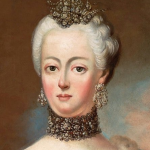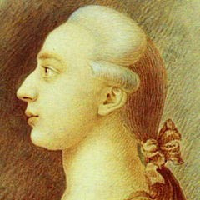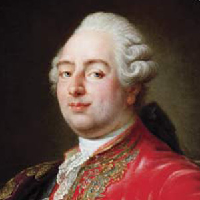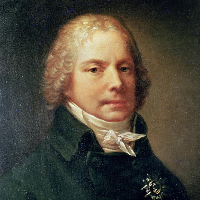Frederick the Great MBTI 성격 유형
인격
"Frederick the Great은 어떤 성격 유형입니까? Frederick the Great은 mbti의 ENFP 성격 유형입니다. enneagram의 8w7 - so/sx - 864, big 5의 SLOAI, socionics의 LIE입니다."
Before you vote Frederick an ISTJ, PLEASE go and read some of his poems, or his letters to his sister or Voltaire. You don't have to agree that he's an ENFP, but labelling him an ISTJ is sooo far off the mark. This is the man who, as a young child, would hide books of ancient philosophy and French poetry under his floorboards so he could quench his thirst for knowledge without his father catching wind. Who would goad and taunt his abusive father, dancing out of the way of his blows, and mocking him at formal dinner events with such sly wit that his father often failed to notice it. This was the boy who hired a secret flute teacher masquerading as a 'military instruction coach', and secretly learned French (and wore french garments and read French philosophy) to express his 'enlightened' sensibilities despite his father despising everything from France. (evidence of strong Fi). This is the young man who attempted to flee the country with his lover when he realized the pressures of kingship had never appealed to him. This is the king who sent gushing fan-letters to his favourite philosophers, wrote dramatic, hilarious poetry about his sexual encounters, and created an entire palace outside of Berlin where he would invite intellectuals, philosophers and musicians to convene in debate and delight. This is the man who was frequently criticised for his "incessant chatter", for his sparking of inane conversations and for his radical, rebellious ideas. Additionally, in both his personal life and in his military activities, Frederick is known to have made some fantastically reckless decisions. His ESTJ father created the strict, competent military for which Prussia was famous, but Frederick the Great was the one who took that army and did some some crazy **** with it. His individualism, artistic creativity and proclivity for risk-taking is really not ISTJ at all, though his emulation of his father's logic, order and frugality can look a lot like Si. He shared his father's love of efficiency in military and state, suggesting that his Te was quite developed, though he was fundamentally untraditional and completely overhauled Prussia's military, educational and judicial systems (to name a few) during his reign.
전기
Frederick II (German: Friedrich II.; 24 January 1712 – 17 August 1786) ruled the Kingdom of Prussia from 1740 until 1786, the longest reign of any Hohenzollern king, at 46 years. His most significant accomplishments during his reign included his military victories, his reorganization of Prussian armies, his patronage of the arts and the Enlightenment and his final success against great odds in the Seven Years' War. Frederick was the last Hohenzollern monarch titled King in Prussia and declared himself King of Prussia after achieving sovereignty over most historically Prussian lands in 1772. Prussia had greatly increased its territories and became a leading military power in Europe under his rule. He became known as Frederick the Great (Friedrich der Große) and was nicknamed Der Alte Fritz ("The Old Fritz") by the Prussian people and eventually the rest of Germany.
인격 correlate

Marie Antoinette

Catherine the Great

Giacomo Casanova

Gilbert du Motier, Marquis de Lafayette

Louis XVI of France

Alexander Suvorov

Charles-Maurice de Talleyrand-Périgord

Edward "Blackbeard" Teach



